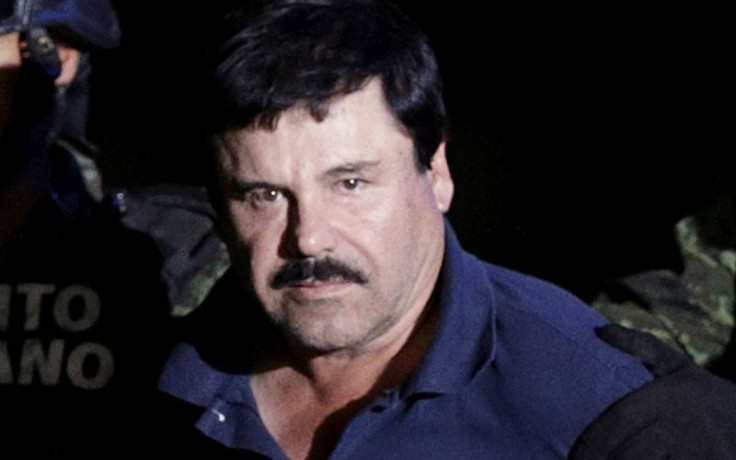
Joaquín "El Chapo" Guzmán was recently transferred to a prison in México near Ciudad Juarez with talks of a possible extradition to the United States of America. Now, it has become official that the drug lord will face charges on U.S. soil after it was reported that Mexico's Foreign Ministry approved the extradition. The dangerous kingpin will not face death penalty and the charges in Texas and California range from drug trafficking to money laundering and homicide.
It was almost a year ago that "El Chapo" escaped from one of Mexico's maximum security prisons. At the time, security said in a statement that "El Chapo" went to the showers just before 9 p.m. Saturday and was not seen after that. When security checked his cell, it was empty and he was nowhere to be found. Turns out, Guzmán crawled through a hole that opened right up into the showers where a massive tunnel was made for him to bail out of prison. He was then captured once again in January of this year when Mexican authorities were tipped off, allegedly due to a meeting the drug lord and actors Kate del Castillo and Sean Penn were having to produce a movie about his life.
That was not the first time "El Chapo" had escaped from jail. In 1993, the kingpin was captured in Guatemala and extradited to Mexico, being sentenced for over 20 years on charges of drug trafficking, criminal association and bribery. In 1995, he was transferred to Puente Grande, a maximum security prison in the Mexican state of Jalisco. By 2001, Guzman broke out of prison when he escaped in a laundry van, with reports from the Univision report giving a different version of the escape. The Spanish-language network now states that he alleged fled the scene dressed as a woman, wearing wig, skirt and heels.
"El Chapo" is best known for his worldwide infrastructure and is the DEAs most wanted man. About 62 of the 120 drug trafficking tunnels that have been found have been linked to Guzman's organization, according to the report. Just last week a new tunnel was discovered that connects San Diego, California with Tijuana, Mexico. "Once again, we've succeeded in taking down a smuggling tunnel before it was fully operational. This action is another huge setback for the Mexican cartels, which invest vast amounts of time and money to build them. These criminal organizations should not mistakenly believe tunnels will be their ticket to success," said John Sandweg, acting director of the U.S. Immigration and Customs Enforcement.
© 2025 Latin Times. All rights reserved. Do not reproduce without permission.



